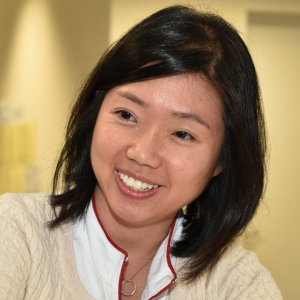Title : Cancer patients self-reported quality of life after community-based cancer rehabilitation
Abstract:
Background: Cancer is the leading cause of death in Singapore, accounting for 28.4% of all deaths. Over the years, precision medicine has significantly reduced cancer related mortality with 5-year age-standardised relative survival (ASRS) increased from 19.5% in 1973-1977 to 59.3% in 2017-2021. With improving life expectancy, quality of life is increasingly important to cancer patients after treatments. Cancer patients are exposed to a wide range of cancer or treatments-related physical adversities of varying severities, some with resultant long-term disability. These include chronic persistent chemotherapy neuropathy, swelling of limb (lymphedema), chronic fatigue and musculoskeletal pain symptoms. A one stop cancer rehabilitation centre helps support cancer patients’ recovery journey optimising overall quality of life (QOL).
Aim: Improving cancer patients’ overall quality of life with a multidimensional cancer rehabilitation program. Methods: This was a retrospective cohort study of Asian cancer patients who had presented at Singapore Cancer Society Rehabilitation Centre. All cancer patients were referred from primary cancer care team after completion of major cancer treatments in tertiary setting. Multidimensional cancer rehabilitation programs consist of structured 12weeks exercise program couple with individualised dietitian consultation as well as physiotherapy, occupational therapy, and lymphedema management care. Eligible patients were adults aged more than 20years old and enrolled into the rehabilitation program. Patients who are terminally ill were excluded. Primary outcome measure was European Organisation for Research and Treatment of Cancer (EORTC QLQ-C30).
Results: Wilcoxon signed rank test indicated significant observed difference (p>0.05) between cancer patients’ baseline (self-reported quality of life) and after discharged from Singapore Cancer Society Rehabilitation Centre. The baseline mean EORTC (Global health status/QOL) was 61.85 (19.59), with 154 cancer patients. Post mean EORTC (Global health status/QOL) was 67.91 (18.91), with 154 cancer patients. Cancer profile ranges from breast, prostate, colorectal, lung, uterine, cervical, lymphoma, ovarian, liver and blood cancers.
Conclusion: There were significant portion of cancer patients with impaired QOL presenting at first visit. A multidimensional, one-stop cancer rehabilitation centre provides potential benefits on enhancing cancer patients’ health related quality of life.




